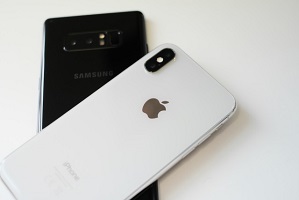Apple and Samsung are being fined €10 million and €5 million respectively by Italian authorities for the “planned obsolescence” of their smartphones, resulting in the operating systems of the devices becoming slower.
In January 2018, an investigation launched by Italy’s competition authority found that certain software updates had a negative effect on the performance of the devices, followed by accusations stating that operating system updates for older phones slowed them down, resulting in customers buying new phones.
“Apple and Samsung implemented dishonest commercial practices”, the antitrust watchdog said in a statement, and that operating system updates “caused serious malfunctions and significantly reduced performance, accelerating phones’ substitution”.
Planned obsolescence refers to the practice of designing products with limited useful lifespans, so that they become increasingly unsatisfactory to the user after a chosen amount of time, meaning consumers are likely to buy newer models.
The statement by the Italian watchdog also said the two companies had not provided their clients with substantial information about the impact of the new software “or any means of restoring the original functionality of the products”.
Samsung told owners of its Galaxy Note 4 phone to install a new version of Google’s Android operating system, which were intended for the more recent Note 7, resulting in the Note 4’s systems slowing down.
Likewise, Apple had persuaded iPhone 6 users to install the iOS operating system designed for the iPhone 7 model, leading to problems with the older model.
Although both firms were fined €5m, Apple was fined an additional €5m for failing to provide customers with clear information about “essential” characteristics of lithium batteries, including their average life expectancy, how to maintain them and how to eventually replace them.
Both firms have been asked to publish a declaration on their Italian web site, telling consumers of the authority’s decision.
In December 2017, Apple was forced to admit last year that it intentionally slowed down older models of its iPhones over time, sparking concerns it was unfairly nudging consumers to upgrade. A month later, French authorities investigated Apple over the concerns addressed during the Christmas period the year before.
In April, the Federal Trade Commission (FTC) issued warnings to six major US companies which manufacture vehicles, phones and gaming systems that it is illegal to condition warranty coverage on the use of specified parts of services.











